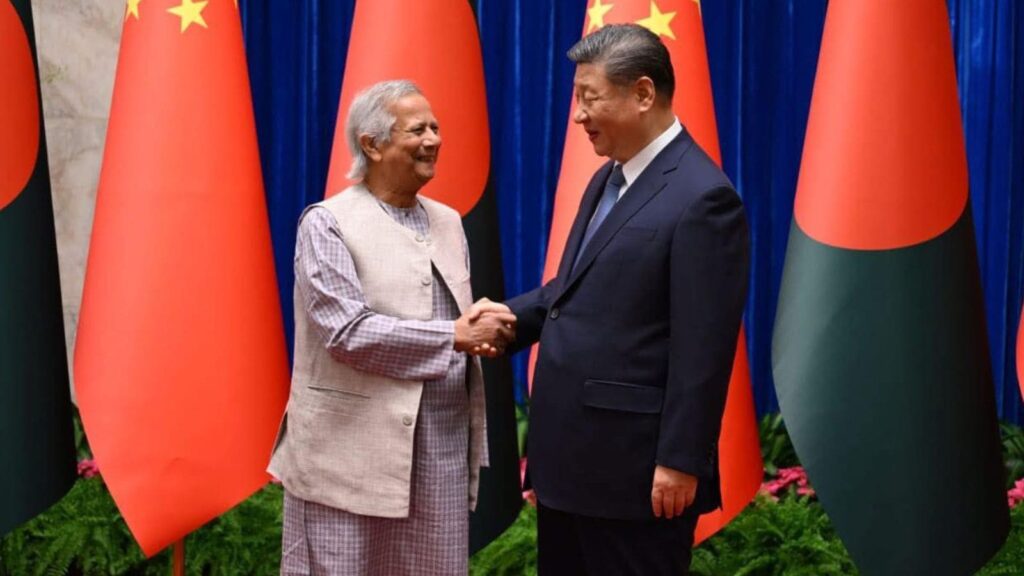Dhaka/New Delhi:
Nobel Laureate and Bangladeshi economist Muhammad Yunus has once again landed in hot water, this time for making controversial remarks regarding India’s strategic Siliguri Corridor, commonly referred to as the “Chicken Neck”, and Nepal’s geopolitical position. The comments have triggered strong reactions from political analysts and citizens alike on both sides of the border.
While attending a recent academic panel discussion on regional connectivity and development in Dhaka, Yunus reportedly referred to the Siliguri Corridor—a narrow strip of land connecting mainland India to its northeastern states—as a “potential fault line in India’s unity,” and made a veiled reference to Nepal’s importance as a “buffer zone” in the growing China-India rivalry.
The comments, although subtle, raised eyebrows in diplomatic circles. Critics argue that such statements could be seen as undermining India’s sovereignty and regional stability, especially at a time when border sensitivities are already high.
Diplomatic Ripples
Sources within the Indian foreign policy establishment have called the remarks “irresponsible” and “unwarranted,” especially coming from someone of Yunus’s global stature.
“It is disappointing to hear a Nobel laureate make observations that echo the language used by adversarial think tanks,” said a retired Indian diplomat. “The Chicken Neck is a sensitive topic. Any suggestion that it’s a vulnerability invites unnecessary strategic chatter from foreign actors.”
Nepal Reacts Cautiously
Interestingly, Nepalese media and political figures have responded with restraint. While some nationalist groups took to social media to express concern over the “buffer zone” terminology, Nepal’s government has not issued any formal reaction yet. Analysts believe this may be due to the nation’s current diplomatic balancing act between India and China.
Muhammad Yunus’s Clarification
Amid mounting backlash, Yunus’s team issued a brief clarification, stating that his comments were taken out of context and that his intent was to advocate for stronger regional cooperation, not stir controversy.
“Professor Yunus believes in peace and economic collaboration across South Asia. Any interpretations suggesting otherwise are deeply regretted,” the statement read.
Reactions Online
Social media platforms have been buzzing since the remarks went public. Many Indian users criticized Yunus, accusing him of pushing narratives that favor rival nations, while others defended his right to speak freely on geopolitical issues.
Some prominent Indian voices, including academics and journalists, called for calm, urging people to assess the full transcript before forming conclusions.
Also read:
‘You have to take revenge, you cannot cry’, remembering the martyred elder brother in the war against Pakistan, tears came out of GD Bakshi’s eyes

